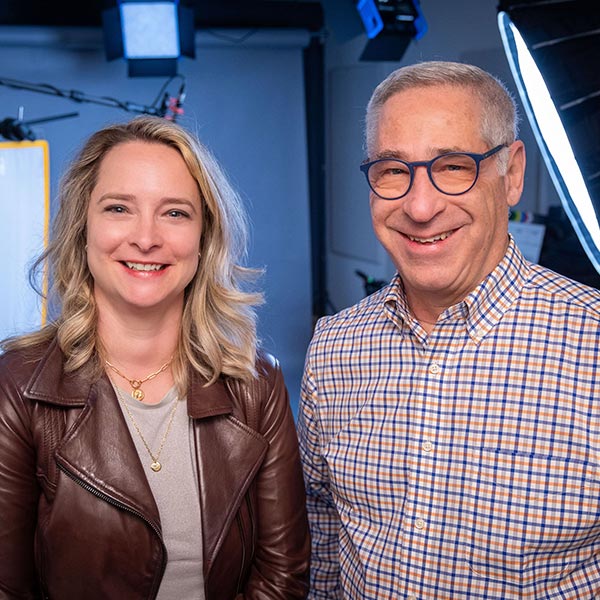It’s one of the medical world’s strange little quirks: no matter how much trust is put in physicians and their years of training and experience, patients still tend to go to the Internet for a diagnosis of an ailment first—and yet when a health professional does the same, alarm bells start ringing.
It’s a phenomenon that has puzzled McGill medical professors Pierre Pluye and Roland Grad, MDCM’84, for some time, and spurred them to write their new book, Look It Up! What Patients, Doctors, Nurses and Pharmacists Need to Know About the Internet and Primary Health Care, co-authored with journalist and author Julie Barlow, BA’91.
The book draws on some 500 case files, extensive interviews with clinicians and patients, and their own research, and offers humanized examples of problems that arise every day in doctors’ offices and pharmacies around the world.
The result is an informative and digestible work designed for both health professionals and lay patients that argues that the Internet, despite its (often justifiable) reputation as a repository of inaccurate or even harmful information, should not be feared or avoided.
Pluye and Grad, both family physicians with decades of experience between them, believe that when it is used responsibly, the Internet can inform and enhance the health care professional-patient relationship by facilitating exchanges of ideas.“Information can be a mediator, like a third person in a room, and help everyone be on the same page,” says Pluye.
The days when patients would scrupulously follow a doctor’s prescription without hesitation are fast passing, they say, and patients today, especially if they are younger and well-educated, tend to want more thorough discussions with their clinicians about diagnoses and possible treatments.
They are also less shy about seeking out information on their own, hence the explosion of health-related web sites. In fact, Pluye says that health information is the most sought out topic of all Internet searches, be it general health information or nutrition or physical activity.
But one of the problems they identify is separating good information from bad. “Dr. Google” never went to medical school, they point out. People who look up their symptoms online often find themselves zeroing in on the worst case scenarios – and fretting needlessly.
“Unfortunately, and people don’t necessarily know this, using search resources such as Google increases anxiety and depression,” says Pluye. Slipshod online self-diagnosis leads to an increase in what’s being called “cyberchondria.”
Pluye and Grad offer a list of resources and web sites in the book that are reputable, trustworthy and that will hopefully allay fears rather than stoke them. Most are geared towards laypeople who are health literate, meaning they can understand complex medical terms without being expert in the field. But since that only accounts for about 40 percent of the adult population, they also recommend web sites that rely on audio and visual tools and simpler though still medically sound advice and explanations.
Conversely, physicians, nurses and pharmacists should also be comfortable consulting the Internet when diagnosing a patient, according to the book. As the body of medical knowledge grows, it’s unrealistic to expect family doctors in particular to keep abreast of every new development, including new drugs and how they interact with each other. Having quick access to the studies that do track them is invaluable, says Pluye.
“It is fine not to know everything” in some medical disciplines, he says. “In oncology, it’s not. You have to know everything about a specific kind of cancer and you [have to stay] up-to-date and go to a conference once a year, and that’s enough.”
In medical fields that cover broader terrain, that’s simply not possible. “In family medicine, forget it.” But Pluye knows it will take some time for attitudes of both doctors and patients to change before they fully embrace the idea of Internet-assisted medicine.
Looking ahead, Pluye and Grad believe that medical knowledge will inevitably become more freely accessible for all—but the basic mission of the family doctor won’t fundamentally change.
“I feel comfortable that we won’t be replaced” by technology, says Grad. “I think there will be an increasing role for algorithms in some of our decisions around drug prescribing, for example, but not all decisions involve drug prescriptions. The big work of a doctor is to understand the person in front of him, who is a complex collection of symptoms and can’t be easily reduced to an algorithm.”


